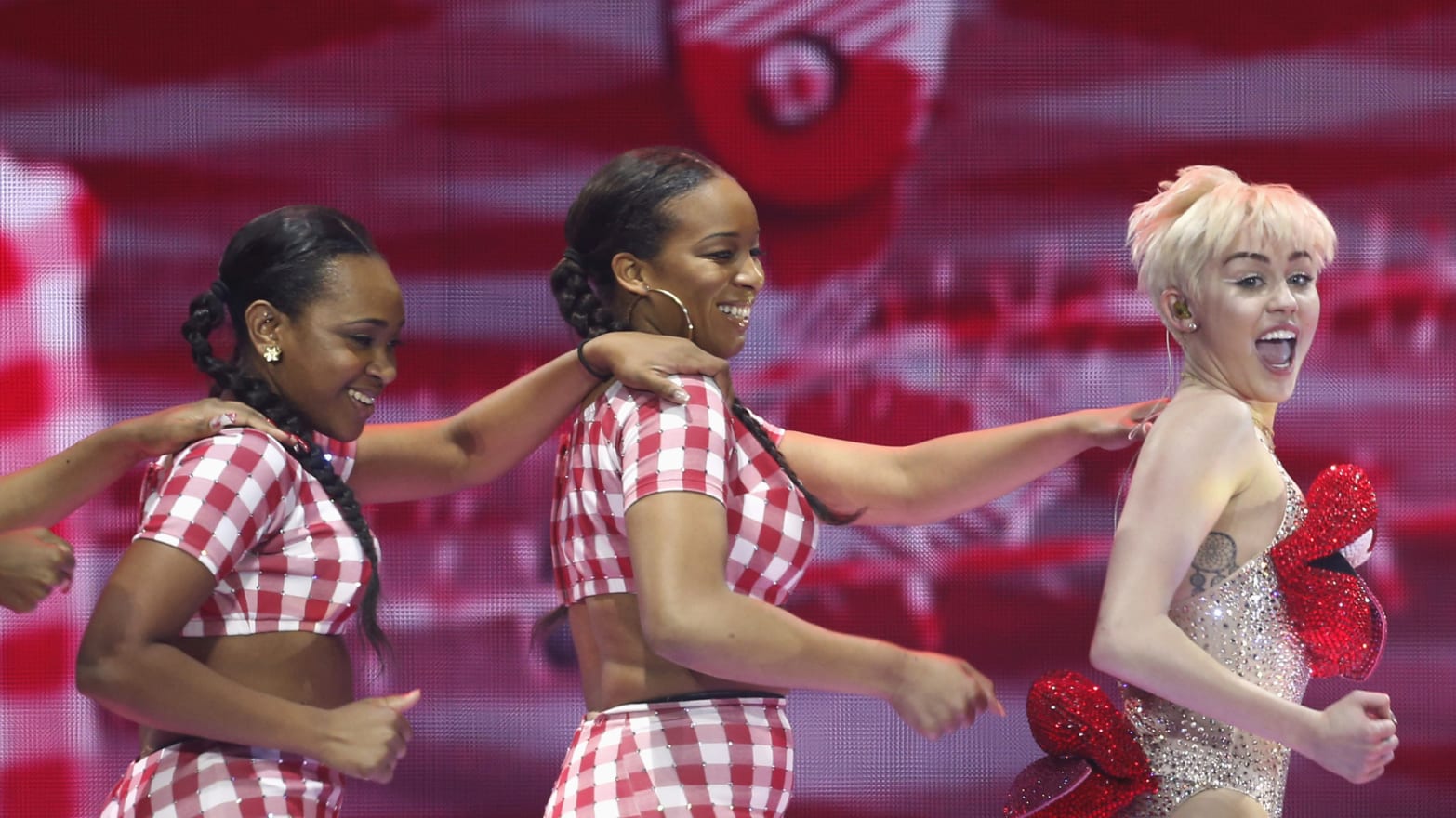You’ve heard it around forever. Elvis Presley stole rock music. Or Eminem couldn’t be considered a truly “authentic” rapper because he’s white.
And there was sense in all of that. But what began as a legitimate complaint has morphed into a handy way of being offended by something that should be taken as a compliment.
A much-discussed recent editorial in Time, where a black woman tells white gay men to stop imitating them by taking on their gestures and expressions, neatly illustrated the nut of the issue. To her, these men are “stealing” black womanhood.
But what does it mean to “steal” someone’s culture when we’re not talking about money? With gay white men and black women, for example, it’s not as if the black women are being left without their culture after the “theft,” or as if gay white men are somehow out there “out-blacking” the women they “stole” from.
The debate over what we call cultural appropriation has roots in the justifiable resentment of white pop musicians imitating black genres for monetary gain. Presley was the classic example. However, this legitimate objection was about bucks: Presley and artists like him were reaping financial rewards that the originators of their music never saw.
But over time, the concept of cultural appropriation has morphed into a parody of the original idea. We are now to get angry simply when whites happily imitate something that minorities do. We now use the word steal in an abstract sense, separated from any kind of material value.
It used to be that we said that imitation is the sincerest form of flattery. But now there is new way to see the matter: Imitation is a kind of dismissal.
But does this idea hold up? I doubt it. If one is seen, and seen in an approving light, one will be imitated. This is what human beings do. The very faculty of language is, to a large extent, a matter of imitation. The idea that when we imitate something we are seeking to replace it rather than join it is weak. Think about it: Does that even make sense? It’s certainly up for debate.
Yet some will insist that we squeeze ourselves into the mental straitjacket and allow this as a “progressive” new take on what it is to be a human in a diverse society. But it won’t work. What’s the evidence? All of human history.
The grand old empires (including the ones in Africa) were all about rampant interethnic appropriation. Every language in the world is shot through with words and grammatical patterns from other languages—that is, signs of people in the past doing what we would call “appropriating.”
In the melting pot that was Harlem in the 1920s, whites were picking up new ways of singing and making music from black people and creating today’s American musical landscape. Were George Gershwin and all of those country singers picking up the blues “appropriating” musical styles they should have given back?
A great deal of black culture was “appropriated” by young America as recently as the ’90s. It became normal for young American women of all extractions to, in underscoring a point, do a certain swivel of the neck which before then was known only to black (and perhaps many Latina) women. Even many extremely white young men today have “appropriated” from black men certain vocal cadences, expressions like “Yo” and “Bro” and greeting styles. Has anyone thought anything was wrong with any of this?
So we don’t even need to explore whether cultural cross-fertilization is a good thing in itself (although Robert Wright is one person especially useful on that). All we need to know is that we will never arrest it, and that a stipulation that brown people in America must be shielded from it will serve no purpose except to provide people with something to be upset about. It will keep happening.
Sure, appropriation can be done clumsily. Last year, Miley Cyrus’ heart was in the right place but she could have used some sensitivity coaching. That’s an old story. In the ’20s, white Carl Van Vechten started feeling so comfortable around black people as a chronicler of the Harlem scene that he misstepped in titling a book “Nigger Heaven.”
But beware any idea that stories like that mean that whites imitating brown people is, fundamentally, wrong and that whites’ job is to somehow pass by minority cultures with some form of what is sometimes termed “respect,” whatever that would mean in practice.
We should just get back to basics on this. For example, white gay men imitate black women out of admiration, much of it out of a sense of black women as fellow sufferers of oppression. The column in Time argues that the main problem is that white gay men suffer less oppression than black women. But as J. Bryan Lowder has put it, that’s a slippery proposition. Comparing Holocausts isn’t a useful way to untie the knot here.
How about this? The claim that white gay men are wrong to imitate black women because they aren’t as oppressed implies that black women’s cultural traits are all a response to oppression. But that’s a reductive take on what it is to be a black woman, which would be dismissed as racist if ventured by a white person.
Ralph Ellison was useful on this: “Can a people,” he asked, “live and develop for over three hundred years simply by reacting?” So very much of what it is to be a black woman is simply being someone, being someone beautiful with a particular complex of cultural traits that simply are, for themselves. That isn’t something anyone can “steal.”
What was good for the Harlem Renaissance is good for 2014. The idea that people can come together while “respectfully” refraining from becoming more like one another is, in all senses, hopeless.

